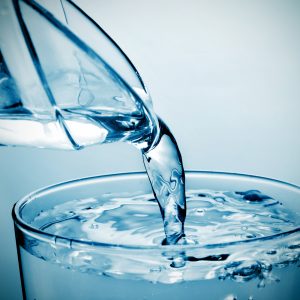
Safe Drinking Water Act Amendments of 2016 Would Set the Stage for Improved Funding and Stronger Warnings from EPA
Washington, D.C. – Lawmakers introduced a new bill today that would increase funding to improve the safety of public drinking water systems in Texas and across the U.S. and set the stage for stronger warnings about contaminated tap water.
U.S. Representatives Frank Pallone Jr. (D-NJ) and Paul Tonko (D-NY) introduced the Safe Drinking Water Act Amendments of 2016 to the House Energy and Commerce Committee in an effort to update the federal Safe Drinking Water Act for the first time in 20 years. The Environmental Integrity Project, which issued a report on arsenic in Texas drinking water in March, and other environmental organizations praised the proposed legislation.
The bill would help address a communications problem exposed by the lead in drinking water crisis in Flint, Michigan — and a similar problem with arsenic in Texas drinking water — by requiring water utilities in Texas and elsewhere to issue improved notifications in annual reports about drinking water quality sent to residents called “consumer confidence reports.” The bill would direct EPA to issue regulations, within two years, that “increase the effectiveness and understandability of consumer confidence reports.”
Poor warnings by states to residents with contaminated drinking water were documented in a pair of reports issued by the Environmental Integrity project on March 14 and Sept. 12, “Don’t Drink the Water” and “Arsenic in California Drinking Water.” The reports revealed that more than 51,000 Texans and 55,000 Californians have drinking water that for years has violated federal health limits for arsenic, a carcinogen that might also damage the IQ of young children.
“This legislation should inspire EPA to require public water systems to warn consumers to avoid cooking or drinking with water that fails to meet health standards for arsenic and other carcinogens year after year,” said Eric Schaeffer, executive director of the Environmental Integrity Project and former director of civil enforcement at EPA. “That long term exposure significantly increases cancer risk and may also contribute to hypertension and learning disabilities, based on recent research.”
Schaeffer added: “The federal and state governments also need to step up to the plate and provide more funding to help provide this safe drinking water, by increasing grants for water filtration systems.”
The Safe Drinking Water Act Amendments of 2016 would also remove procedural hurdles that slow EPA’s setting of standards for other drinking water contaminants. It sets deadlines for the development of new federal standards on known dangers including: lead, perchlorate, perfluorinated compounds, and algal toxins. In addition, the proposed legislation would provide grants for replacement of lead service lines in schools and communities and funding to protect drinking water systems from saltwater intrusion and contamination from climate change and extreme weather.
The bill has language to help low-income people replace privately-owned lead service lines in their homes. The proposal would provide funds that local water utilities could use to give eligible homeowners assistance of up to $10,000 for lead line replacement.
For a copy of the bill, click here.
For a summary of the bill’s provisions, click here.
For a press release from the bill’s sponsors, click here.
The Environmental Integrity Project (EIP) is a 14 year old nonpartisan, nonprofit organization, based in Washington DC and Austin, Texas, that works to enforce environmental laws and hold polluters and governments accountable to protect public health.
Media contact: Tom Pelton, Environmental Integrity Project, (202) 888-2702 or tpelton@environmentalintegrity.org


